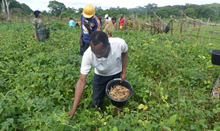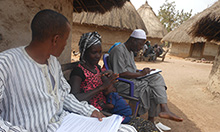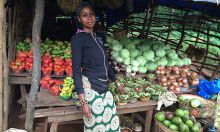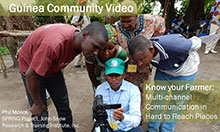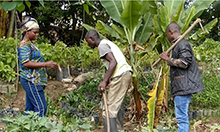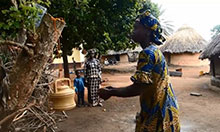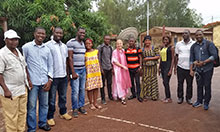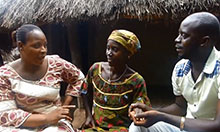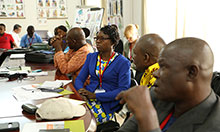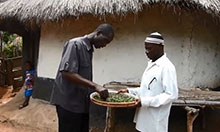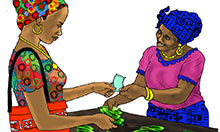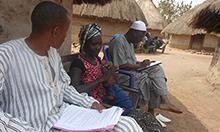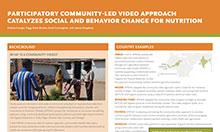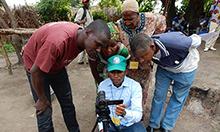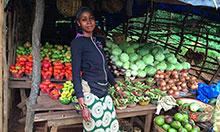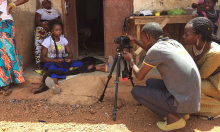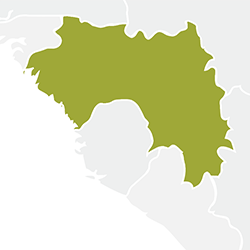 SPRING began working in Guinea in September 2015, as part of the broader effort within the region to spur recovery from the Ebola crisis of 2014-2015. An initial assessment found that the food security and nutrition situation had significant challenges even before the crisis, and that health and agricultural services had been badly disrupted. SPRING helped to contribute to improving dietary diversity among households with pregnant and lactating women and children under the age of two in Faranah prefecture, the program’s targeted area. SPRING supported the overarching Feed the Future objectives of improving nutritional status, leveraging agricultural productivity, and improving income generation.
SPRING began working in Guinea in September 2015, as part of the broader effort within the region to spur recovery from the Ebola crisis of 2014-2015. An initial assessment found that the food security and nutrition situation had significant challenges even before the crisis, and that health and agricultural services had been badly disrupted. SPRING helped to contribute to improving dietary diversity among households with pregnant and lactating women and children under the age of two in Faranah prefecture, the program’s targeted area. SPRING supported the overarching Feed the Future objectives of improving nutritional status, leveraging agricultural productivity, and improving income generation.
SPRING/Guinea focused interventions on developing and testing approaches to promote nutrition-specific behaviors and nutrition-sensitive agriculture practices, sharing lessons learned, and encouraging cross-sectoral collaboration. A number of social and behavior change communication (SBCC) approaches focused efforts on key behaviors such as improving dietary diversity; maternal, infant, and young child nutrition (MIYCN); and improved hygiene, with a special focus on the “thousand day households” - those with pregnant women and children under two years of age. Results from SPRING/Guinea’s activities helped to inform future, longer-term programs, such as the SMARTE project, led by Winrock International.
